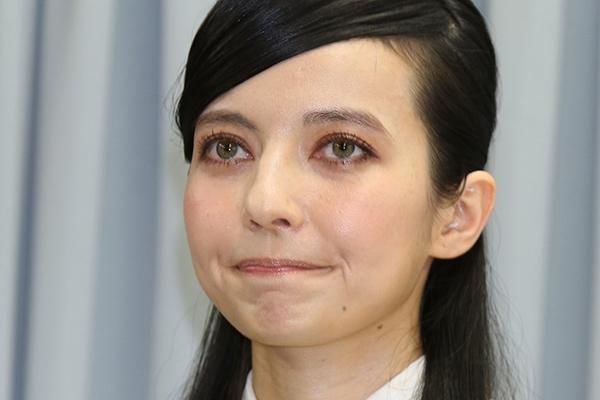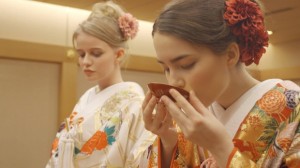The return to Japanese TV screens last week of the 32-year-old unmarried TV “talent” Becky was a major event for the entertainment industry. Her homecoming after weeks of exile attracted 24% of the viewing figures as she made another apology and offered further explanation for her now-terminated affair with married rock singer Enon Kawatani.
Her original tearful press conference in January where she apologized after a tabloid exposed the affair was a bizarre event, primarily because she did a good job of looking remorseful without actually stating directly what she had done.
But the details are widely now known and she gave more of them herself on Friday, the first TV appearance in 104 days for the one-time most successful female talent in Japan. All in all, Enon Kawatani is emerging as the villain of the piece, even though his career has apparently been unaffected by the scandal.
Kawatani, has since divorced his wife, though Becky made clear that she is no longer interested in him. However, reports surfacing that Kawatani’s ex-spouse is pregnant may continue to trouble Becky’s comeback. Similarly, former Morning Museum Mari Yaguchi, whose infidelity famously ended her marriage to another celebrity, has yet to make a full return to the mainstream. She recently appeared in a Nissin TV commercial sending up her history, though complaints led to the ad being taken off the air.

The Japanese entertainment’s hypocritical attitude towards adultery is well catalogued and the Becky scandal was said by some to exemplify this sexism. For the most part, the narrative goes, the men get away with it while the women see their reputations damaged, temporarily or permanently, as was the case with Mona Yamamoto. After two scandals with married men, Yamamoto’s career zigzagged before she finally got married and retired from show business. Becky’s return to her previous status may be difficult because so much of her appeal and on-screen personality rested on her girl-next-door innocence, which was proved untrue by her affair. Perhaps she should get married and reinvent herself as a different sort of entertainer altogether.
In addition to the Becky saga, adultery has been much in the public eye of late, thanks to the tabloid expose in February of politician Kensuke Miyazaki’s affair while his wife and fellow lawmaker was in hospital waiting to give birth. Miyazaki, who has since resigned his seat, had been lauded for setting an example by taking paternity leave. Again, as with Becky, it was the shock that the image he was projecting to the public was not the whole truth that magnified the backlash. If Miyazaki had just been another rising LDP politico, likely the tabloids wouldn’t have tailed him and even if they had discovered an affair, the response from his colleagues and voters would surely have been different. (The response from his wife, we imagine, would have been the same, and quite rightly so.)
And then in March there was sports writer and prospective politician, Hirotada Ototake, again brought down by a tabloid scoop that revealed his double life as a playboy and frequenter of Kabukicho establishments. Incredibly he managed to persuade his wife to apologize for him and even take on part of the blame.
Perhaps it is no coincidence, then, that this season there are currently four dramas on Japanese television dealign with adultery: Fukigen na Kajitsu on TV Asahi, Busujima Yuriko no Sekirara Nikki on TBS, Contrail–Crime and Love on NHK, and Boku no Yabai Tsuma on Fuji Television.
Of course, this is far from the first time that Japanese TV dramas have portayed the theme. You can find examples at least going back the 1970s. But the way that women are depicted has changed. Now the tone has shifted to female characters who happen to fall in love with men other than their husbands or boyfriends. It is more overt and positive, even if the women are also “wrongdoers”.
After the success of Hirugao in 2014, infidelity in Japan was reported to be trendy. Women saw the attractive leads (Aya Ueto, Michiko Kichise) doing something “wrong” (but which their husbands had perhaps got away with for years) but looking damn fine while doing it. Hirugao was also perfectly timed to ride the crest of another new development. When Ashley Madison launched in Japan in 2013, it gained 1 million members in nine months. Clearly there was a need for this kind of safe, convenient way to have an affair.
Art imitates life and life imitates art: Japanese television is seemingly reflecting this shift among women, from the dramas to the celebrities who appear on shows.
























